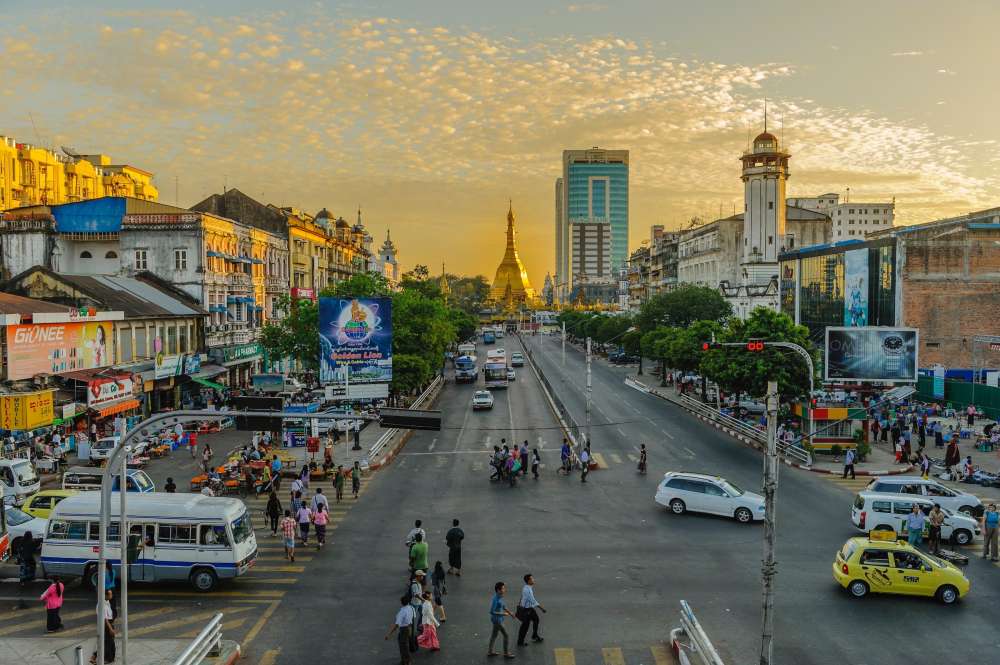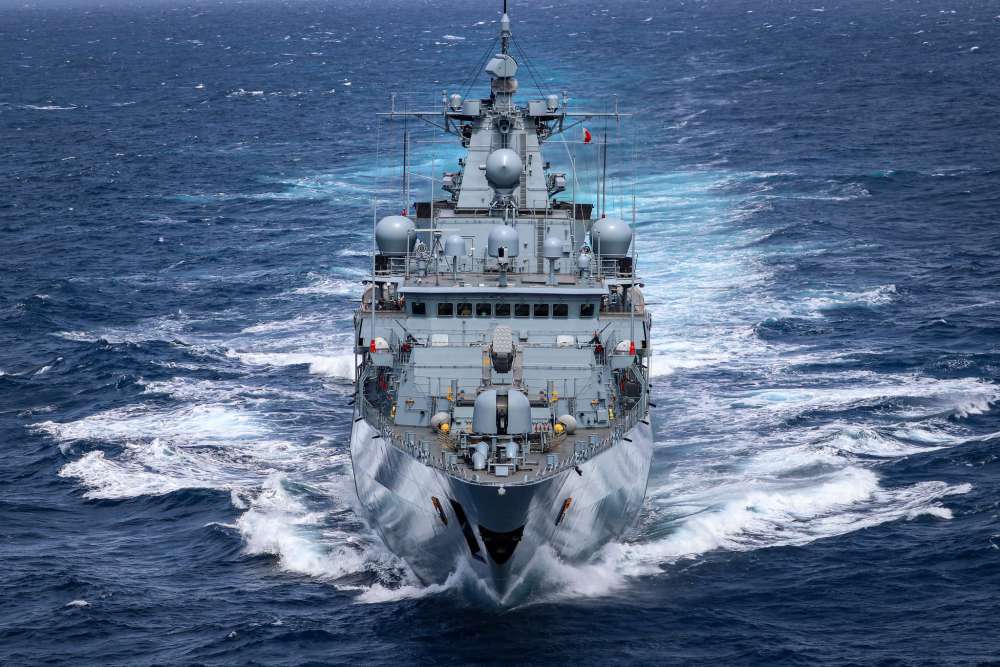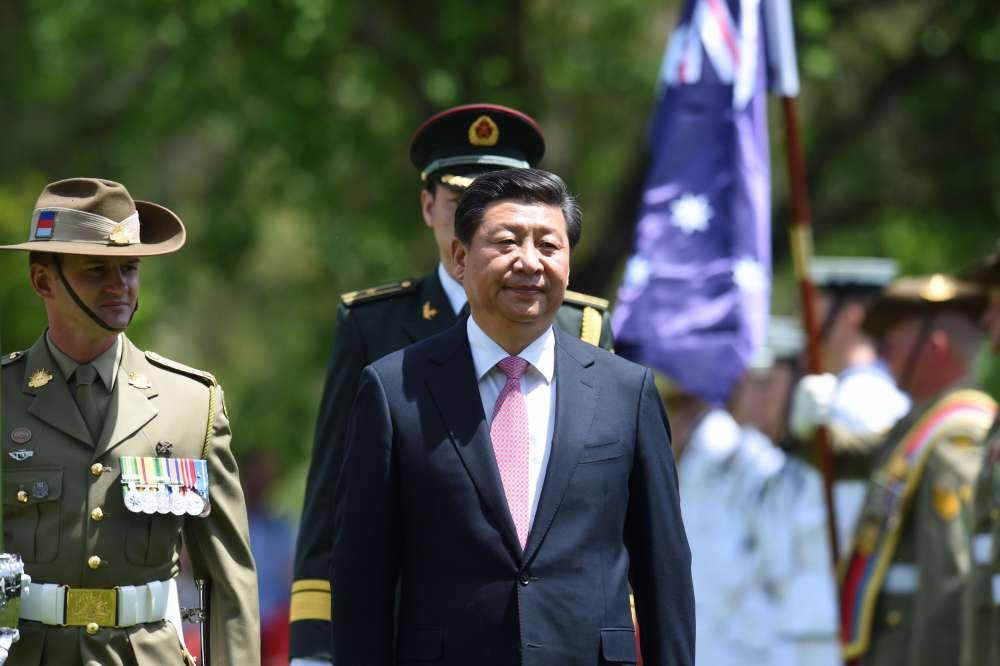Why Southeast Asia Matters for German National Security

(Alexander Schimmeck /Unsplash)
Beyond its fame as a tropical touristic destination, Southeast Asia is a key partner on security. As Berlin crafts its upcoming National Security Strategy, it should focus on building bridges in the region.
Southeast Asia is home to nearly 700 million people living at the intersection of Chinese and Indian civilizations. For thousands of years, the area has been the heart of the Indo-Pacific and Asia Pacific regions in terms of politics, and hosts key annual summits that are attended by world leaders. In light of its global significance, it is high time for Berlin to take Southeast Asia more seriously.
At the moment, Germany is entering its Zeitenwende – or turning point – era and composing its first-ever National Security Strategy. And it does so in the wake of Russia’s brutal invasion of Ukraine. Under these conditions, it is inevitable for Berlin to realize Southeast Asia’s strategic importance to its national security, as the region’s geo-strategic and geo-economic circumstances are vividly linked to Europe. Berlin needs a Southeast Asia strategy that is elastic, cohesive and comprehensive in order to engage more meaningfully in this thriving region of the East. And to be successful, it should also be more specific than the Germany’s 2020 Policy Guidelines on the Indo-Pacific.
German Chancellor Olaf Scholz’s recent visit to the region highlighted this sentiment. Setting foot in Hanoi, Singapore and Bali, the German leader stressed that the Asia Pacific as a region is something “much more than China,” confirming the need to enhance economic, security and political cooperation with the states in Southeast Asia.
Economic Security Is National Security
At the same time that Germany’s Wandel-durch-Handel – or change-through-trade – approach received its final death blow with Russia’s invasion of Ukraine, Germany’s economic ties with authoritarian China came under the spotlight. Ahead of his somewhat controversial first visit to Beijing as German Chancellor, Scholz spoke out against decoupling from China but also warned of economic “over-reliance” on the Communist state.
Southeast Asia’s 4.53 trillion dollar economies offer a long-term answer to Germany’s quest for economic diversification. The region’s young and dynamic workforce, conducive geography to global trade and supply chains, as well as its rapid transition out of the pandemic make it an attractive alternative to its next-door neighbor, China. The fast-emerging middle class in Southeast Asia would also be a worthwhile choice for German companies looking to diversify their export destinations. In addition, as Scholz emphasized in Hanoi, supplies of raw industrial materials, including rare earth, can also be sourced from the region.
» Southeast Asia’s 4.53 trillion dollar economies offer a long-term answer to Germany’s quest for economic diversification. «
Further, Germany has the opportunity to be a timely and competent partner in the region’s pro-business drive to fight corruption and raise the standard of social and consumer protections. Germany’s experiences in data protection, digital safety and cyber-security would provide key insights from which the region could learn. As a leading bloc promoting free trade, Southeast Asia is also a potential partner for Germany to counter de-globalization trends.
It Is Always Political
To productively engage with Southeast Asia, Germany will need to consider an unorthodox path that allows it to flexibly maneuver between a strategic and value-based approach. Making democratic norms the backbone of its Southeast Asia strategy would undoubtedly backfire: the political reality is that some Southeast Asian states are run by authoritarian regimes, and most others are fragile democracies. Certainly, Southeast Asia is no stranger to the routine abuse of civic and political rights.
Countries in the region are fiercely sensitive to criticisms of their internal conduct, though they usually leave a small window of opportunity for opposition dissidents and civil society critiques. To navigate this environment, the best way forward for Germany is to have a presence in the region, and to listen and understand the on-the-ground perspectives. Berlin should lend its much-needed support to the groups and communities promoting peace, stability, democracy, and human rights in Southeast Asian states, both at the national and grassroots levels. Already, foundations affiliated with the German political parties are performing well with key players across Southeast Asian governments, think-tanks, civil societies, and the private sector, where they engage with a diverse set of issues.
Key Points:
- Southeast Asian states represent potential partners for Germany in addressing global security challenges and bolstering its economy.
- It is in Germany’s security interests to defend democracy in Southeast Asia. Thus, Berlin should aid local scholars, politicians and activists committed to the rule of law.
- To mitigate future conflicts in the region, Germany should assist Southeast Asian armed forces in upholding professional standards and preparing for the geopolitical challenges ahead.
It is in Germany’s national security interest to defend and promote democracy in regions like Southeast Asia. While there is no quick fix for democratizing the region, Germany is well-placed to provide long-term, consistent assistance to emerging scholars, politicians and activists committed to democracy and the rule of law. These actors play key roles in holding governments in the region to account.
During these exchanges, Germany would be wise to absorb the diverse perspectives on governance as well as distinctive approaches to statecraft and foreign policy in each Southeast Asian state – some of which are rapidly developing their defense capability in response to disputes with Beijing in the South China Sea.
Southeast Asia and Rules-Based International Security
Southeast Asia is in the driver’s seat when it comes to upholding international law on the front-lines, such as in the South China Sea. As such, the region deserves more support from Germany to build up and reform their armed forces to uphold professional standards and be ready for the challenging tasks ahead.
The Bundeswehr – the post-war armed forces that served Germany’s Federal Republic and later the reunited Germany – has the opportunity to project a model of higher moral and ethical standards by expanding their exchanges and trainings with their Southeast Asian counterparts. The Bundeswehr and the German Federal Ministry of Defense (BMVg) could selectively work with units and branches of lesser notoriety in the region on important topics, including international humanitarian law. More disciplined and rights-respecting militaries in Southeast Asia as a result of potential contributions from both the Bundeswehr and BMVg would be an insurance policy for long-term security in the region.
On the defense diplomacy front, Germany and the European Union should take steps toward forming a Comprehensive Strategic Partnership with the Association of Southeast Asian Nations (ASEAN). Beyond that, Germany should move toward permanent membership and participation in ASEAN-led mechanisms, including the ASEAN Defense Ministers’ Meeting Plus (defense-ministerial level), ASEAN Regional Forum (foreign-ministerial level) and the East Asia Summit (chancellor level). Germany’s attendance in these forums will raise its profile and create the opportunity to project German ideas, perspectives and contributions to the defense and diplomatic communities in the region. More frequent exchanges, routine trainings and port-calls – including all levels of academia, military staff and defense policymakers – would be more than welcomed by the regional defense establishments.
» More disciplined and rights-respecting militaries in Southeast Asia would be an insurance policy for long-term security. «
Conflicts in Southeast Asia also matter for Germany. Myanmar’s post-coup crisis, for example, has a direct link to Europe. Largely isolated by its Southeast Asian neighbors, the Tatmadaw (Myanmar’s military) junta found comfort in Moscow’s embrace as a key economic, political and military ally. As demonstrated by Iran and North Korea’s support to Russia during the Ukraine war, failure to deter the Tatmadaw could lead to Myanmar serving as a point of transit for illicit sources routed to Russia. The Tatmadaw’s deal with the Kremlin on ‘nuclear cooperation’ could also threaten the region, regardless of its civilian or military purposes. In this case, for instance, Germany should consider offering military and diplomatic support to the armed, pro-democracy resistance – the People’s Defense Force and National Unity Government – as leverage to pressure the rights-abusing junta to negotiate and offer a clear roadmap back to normalcy. Berlin, alongside its European partners, should also consult and encourage Myanmar’s neighbors – especially other Southeast Asian states – to take a bolder stance to ensure the Myanmar junta stops the ongoing violence.
A peaceful and stable Southeast Asia that supports international laws, norms and multilateralism is in Germany’s strategic interest. To make that a reality, Berlin needs to contribute to and engage more actively in the region. One way to make a big step forward: making stronger ties with Southeast Asia an objective of Germany’s first National Security Strategy.
Chhengpor Aun
Graduate Student, Hertie School of Governance
Keep on reading

Strategic Corruption Is a Security Threat
Authoritarian states are using weaponized corruption to further their geopolitical objectives abroad. To tackle the issue, Germany needs a holistic strategy to effectively close the loopholes that kleptocrats exploit.

Bringing the Indo-Pacific into Germany’s Security Strategy
Germany’s first-ever national security strategy represents an opportunity to re-examine how Germany sees the world – not just the developments in Europe, but also those in the Indo-Pacific.

Security through Preparedness: Lessons from Australia and the Indo-Pacific
For any country with strong stakes in a rules-based order, China’s recent aggressions in the Indo-Pacific should set off alarm bells. It’s time for new thinking about national preparedness – as Australia has learned in recent years.